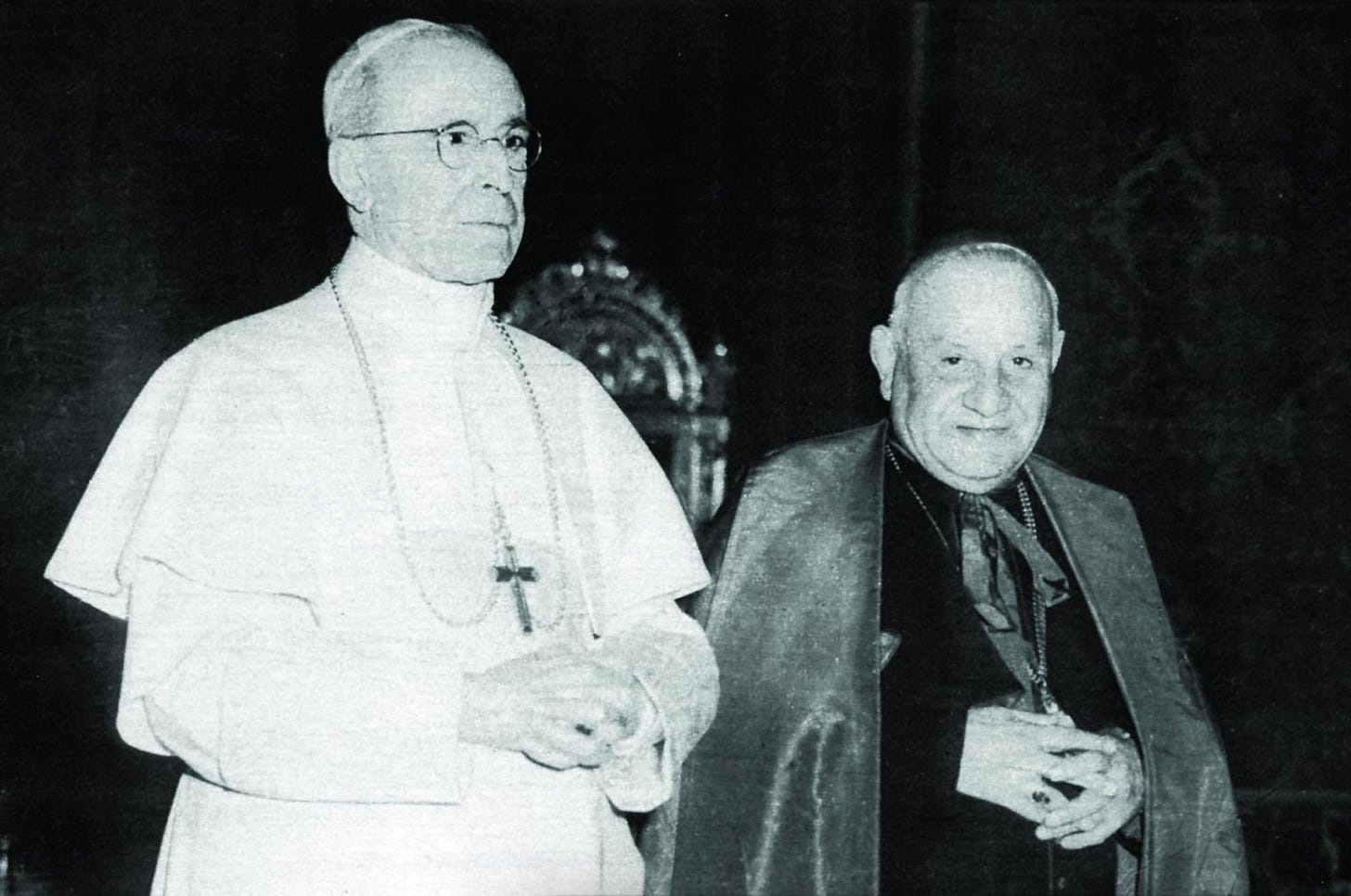Popes for peace: Leo and Francis, and Pius and John
Leo seems to be more in line with Pius XII where Francis echoed St. John XXIII
From the first words of his first appearance, Pope Leo XIV has called for peace.
As a stylistic choice, greeting the crowd in St. Peter’s square with the traditional “peace be with you,” was a point of difference with his immediate predecessor Francis, who famously opened a simple “good evening.”

